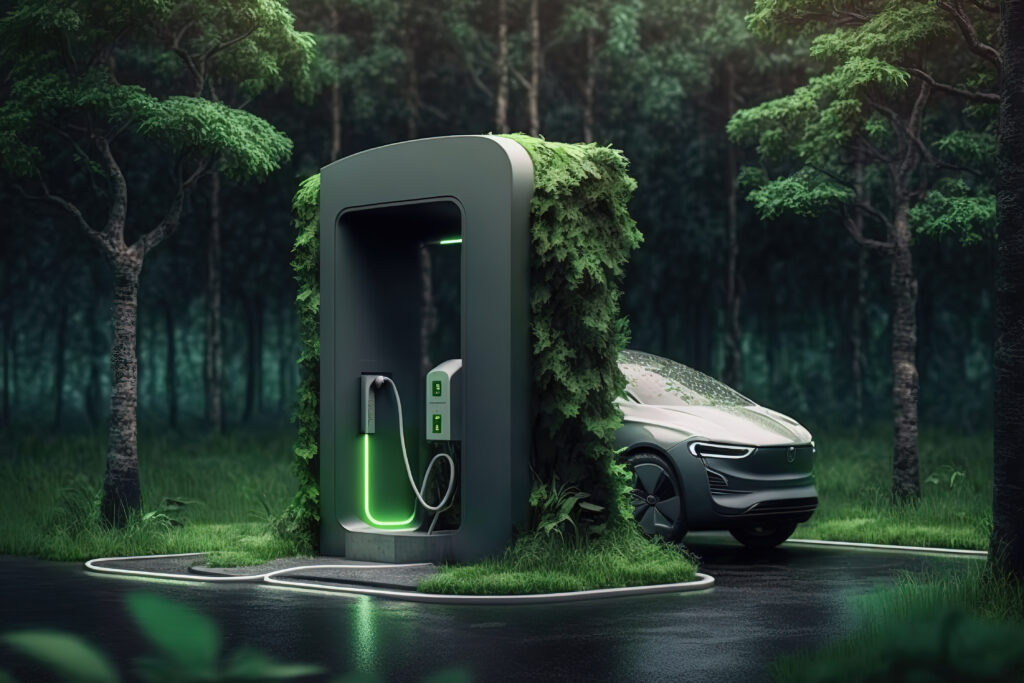By Rob Baum, TechFlow CEO

As electric vehicle (EV) adoption continues to accelerate worldwide, the demand for efficient and reliable charging infrastructure is growing in tandem. Artificial intelligence (AI) has the potential to reshape the EV charging landscape, improving user experience, optimizing energy management, and facilitating the integration of renewable energy sources. I can think of five ways AI can impact EV charging infrastructure and provide benefits to users and the environment:
- Smart Charging and Load Management: AI can optimize EV charging by intelligently distributing power among charging stations based on factors like grid capacity, real-time electricity pricing, and user preferences. This load management ensures that the electrical grid is not overburdened, prevents power outages, and can even help reduce charging costs for users by taking advantage of off-peak electricity rates. TechFlow’s team has worked on projects that showcase these very features and we are currently working on other solutions for our clients around these exciting enhancements.
- Predictive Maintenance and Monitoring: AI-driven predictive maintenance can help identify potential issues in charging infrastructure before they become critical problems, reducing downtime, and improving the overall user experience. By analyzing data from sensors and historical trends, AI can predict when a charging station may require maintenance or replacement, minimizing the impact on users and ensuring the charging network remains reliable. TechFlow has been working on predictive maintenance solutions for the federal government and is applying this to EV infrastructure to provide a better charging experience for everyone.
- Enhanced User Experience: AI can enhance the user experience by providing personalized charging recommendations based on driving patterns, battery status, and location data. By integrating with navigation systems and smartphone apps, AI can suggest optimal charging locations and times, taking into account factors like wait times, cost, and charging speed. This level of personalization will simplify the EV charging process and encourage more drivers to make the switch to electric vehicles. TechFlow has been protecting the security of user data for the federal government and we continue to integrate this level of protection for users of all our EV infrastructure integrations.
- Integration of Renewable Energy Sources: AI can help optimize the integration of renewable energy sources, like solar and wind power, into EV charging infrastructure. By predicting renewable energy generation levels and adjusting the charging schedules accordingly, AI can ensure that EVs are charged using the most environmentally friendly and cost-effective power sources available. This will not only help reduce the carbon footprint of EVs but also support the growth of renewable energy generation. TechFlow’s team continues to integrate not only solar and wind but also microgrid capabilities using fuel cells, hydrogen, advanced energy storage, and intelligent controls to shape this exciting optimization of renewable resources.
- Demand Response, Dynamic Pricing, and Real-Time Markets: AI algorithms can optimize pricing based on real-time supply and demand data, allowing charging station operators to adjust prices to encourage charging during off-peak hours and prevent congestion during peak hours. Algorithms can also be used to predict the demand for EV charging at different times of the day and adjust the charging rates accordingly to balance supply and demand and prevent grid overload. This also allows the opportunity to support the utility grid by participating in demand response programs and other real-time markets to support the grid and enhance the payback period of the project. TechFlow built the first Vehicle-to-Microgrid project in the world which has supported not only our host customer, but also the surrounding community by allowing the utility to provide energy during times when supply was low.
The integration of artificial intelligence into EV charging infrastructure promises to revolutionize the way electric vehicles are charged and maintained. By improving load management, predictive maintenance, user experience, and the integration of renewable energy sources, AI will not only make EV charging more efficient and convenient but also contribute to a more sustainable and environmentally friendly transportation future.
The good news is the time has already come and we are excited to be part of the pioneering efforts to bring safe, reliable, and intelligent charging for your EV. We know what’s needed, what’s wanted, and most importantly, what’s coming! Let us know how we can help you with your infrastructure needs.
TechFlow, Always Ahead.



